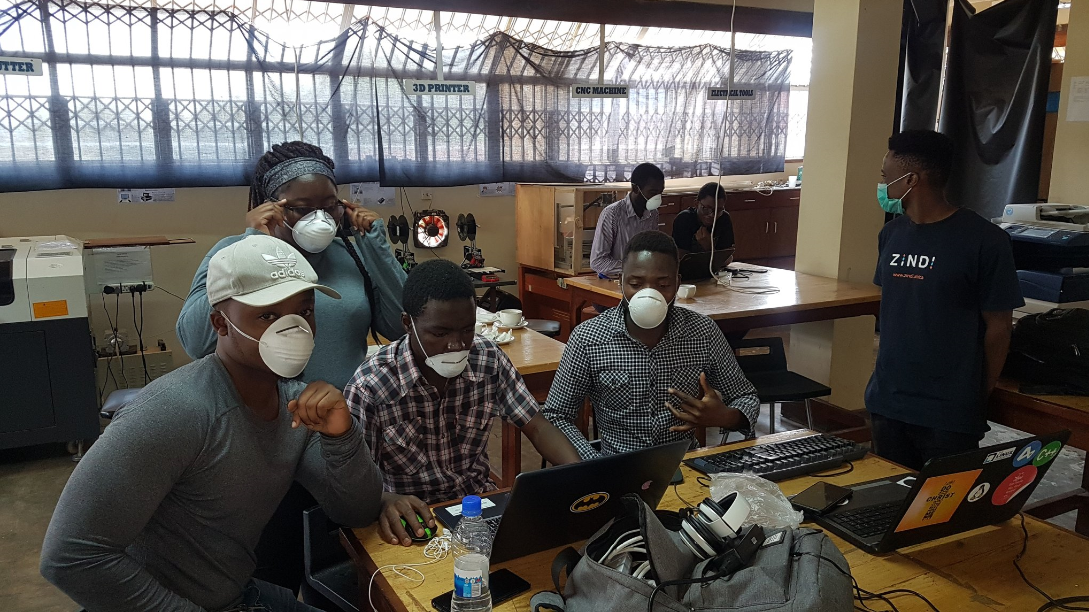YouTube has been criticized for continuing to host coronavirus disinformation on its video sharing platform during a global health emergency.
Two US advocacy groups which campaign for online safety undertook an 18-day investigation of the video sharing platform in March — finding what they say were “dozens” of examples of dubious videos, including videos touting bogus vaccines the sellers claimed would protect buyers from COVID-19.
They also found videos advertising medical masks of unknown quality for sale.
There have been concerns about shortages of masks for front-line medical staff, as well as the risk of online scammers hawking low grade kit that does not offered the claimed protection against the virus.
Google said last month that it would temporarily take down ads for masks from its ad network but sellers looking to exploit the coronavirus crisis appear to be circumventing the ban by using YouTube’s video sharing platform as an alternative digital shop window to lure buyers.
Researchers working for the Digital Citizens Alliance (DCA) and the Coalition for a Safer Web (CSW) initiated conversations with sellers they found touting dodgy coronavirus wares on YouTube — and were offered useless ‘vaccines’ for purchase and hundreds of masks of unknown quality.
“There was ample reason to believe the offers for masks were dubious as well [as the vaccines], as highlighted by interactions with representatives from some of the sellers,” they said.
Their report includes screengrabs of some of the interactions with the sellers. In one a seller tells the researchers they don’t accept credit cards — but they do accept CashApp, PayPal, Google or Amazon gift cards or Bitcoin.
The same seller offered the researchers vaccines priced at $135 each, and suggested they purchase MMR/Varicella when asked which one is “the best”. Such a vaccine, even if it functioned for MMR/Varicella, would obviously offer no protection against COVID-19.
Another seller was found to be hawking “COVID-19 drugs” using a YouTube account name “Real ID Card Fake Passport Producer”.
“How does a guy calling himself ‘Real ID Card Fake Passport Producer’ even get a page on YouTube?” said Eric Feinberg, lead researcher for CSW, in a statement accompanying the report. “It’s all too easy to get ahold of these guys. We called some of them. Once you contact them, they are relentless. They’ll call you back at all hours and hound you until you buy something. They’ll call you in the middle of the night. They are predators looking to capitalize on our fear.”
A spokesman for the DCA told us the researchers compiled the report based on content from around 60 videos they identified hawking coronavirus-related ‘cures’ or kit between March 6-24.
“There are too many to count. Everyday, I find more,” added Feinberg.
The groups are also critical of how YouTube’s platform risks lending credibility to coronavirus disinformation because the platform now displays official CDC-branded banners under any COVID-19 related material — including the dubious videos their report highlights.
“YouTube also mixes trusted resources with sites that shouldn’t be trusted and that could confuse consumers — especially when they are scared and desperate,” said DCA executive director, Tom Galvin, in a statement. “It’s hard enough to tell who’s legitimate and who’s not on YouTube.”
The DCA and CSW have written letters to the US Department of Justice and the Federal Trade Commission laying out their findings and calling for “swift action” to hold bad actors accountable.
“YouTube, and its parent company Google, are shirking their formal policy that prohibits content that capitalizes off sensitive events,” they write in a letter to attorney general Barr.
“Digital Citizens is sharing this information in the hopes your Justice Department will act swiftly to hold bad actors, who take advantage of the coronavirus, accountable. In this crisis, strong action will deter others from engaging in criminal or illicit acts that harm consumers or add to confusion and anxiety,” they add.
Responding to the groups’ findings a YouTube spokesperson said some of the videos the researchers had identified had not received many views.
After we contacted the company about the content YouTube told us it had removed three channels identified by the researchers in the report for violating its Community Guidelines.
In a statement YouTube added:
Our thoughts are with everyone affected by the coronavirus around the world. We’re committed to providing helpful information at this critical time, including raising authoritative content, reducing the spread of harmful misinformation and showing information panels, using WHO / CDC data, to help combat misinformation. To date, there have been over 5B impressions on our information panels for coronavirus related videos and searches. We also have clear policies against COVID-19 misinformation and we quickly remove videos violating these policies when flagged to us.
The DCA and CSW also recently undertook a similar review of Facebook’s platform — finding sellers touting masks for sale despite the tech giant’s claimed ban on such content. “Facebook promised CNN when they did a story on our report about them that the masks would be gone a week ago, but the researchers from CSW are still finding the masks now,” their spokesman told us.
Earlier this week the Tech Transparency Project also reported still being able to find masks for sale on Facebook’s platform. It found examples of masks showing up in Google’s targeted ads too.



